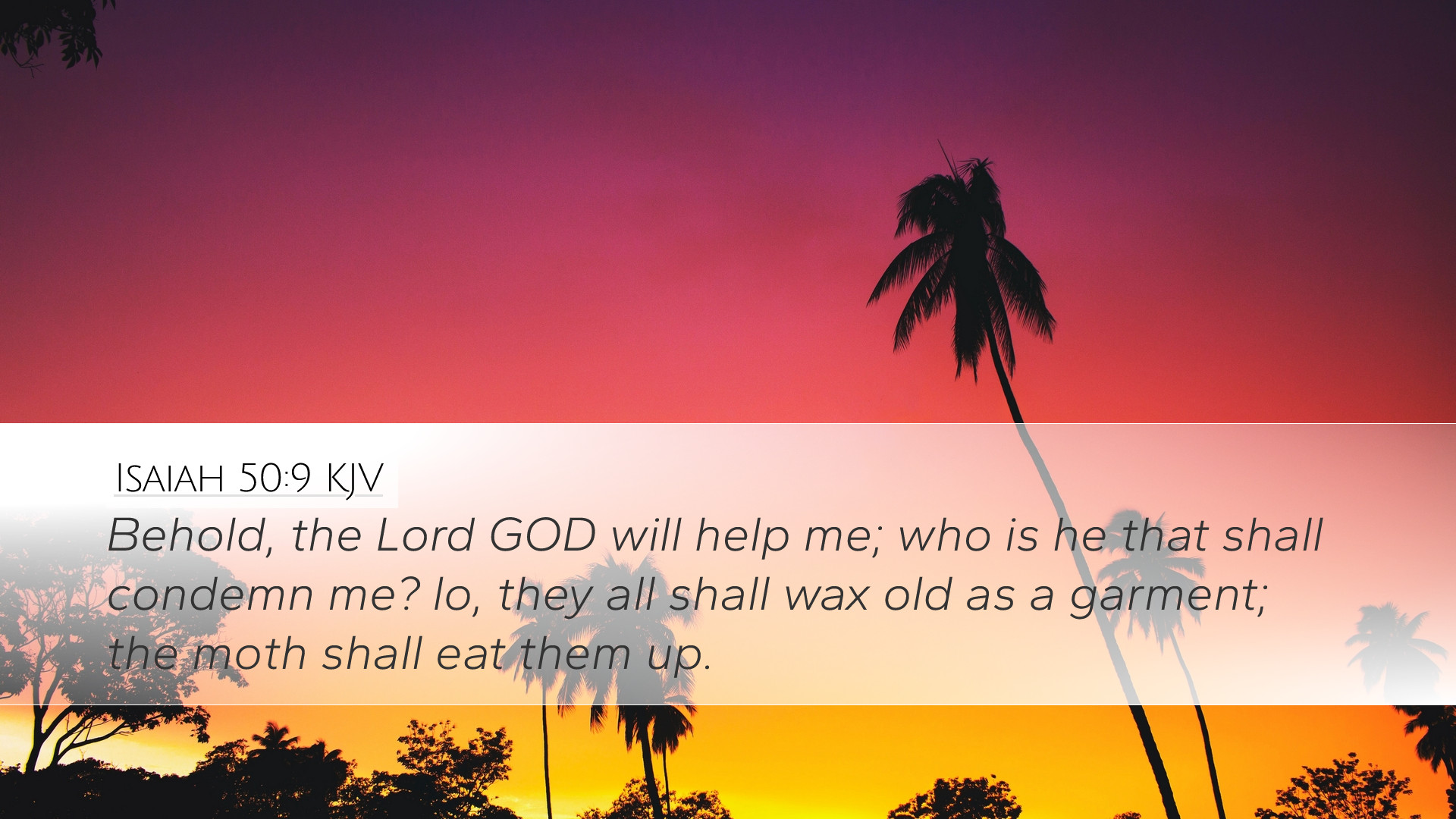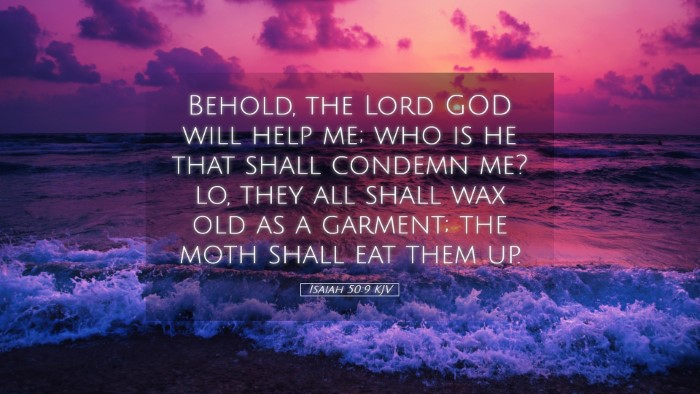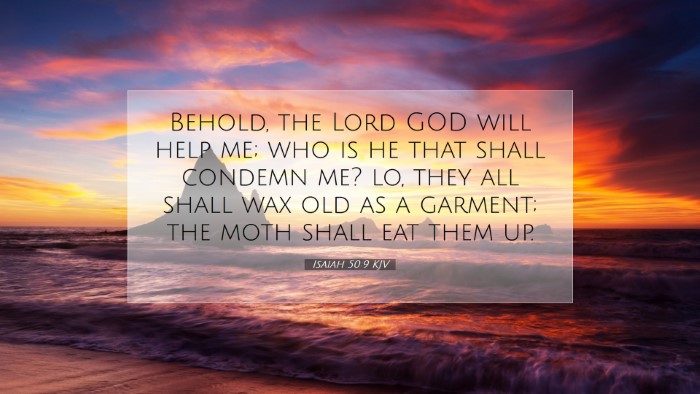Commentary on Isaiah 50:9
Verse: "Behold, the Lord God will help me; who is he that shall condemn me? Lo, they all shall wax old as a garment; the moth shall eat them up."
Introduction
The prophetic utterance of Isaiah 50:9 stands as a powerful testament of God’s promise of support and deliverance. This verse encapsulates themes of divine assistance, the transience of human judgment, and the ultimate victory of God’s chosen over their adversaries. In this commentary, we shall explore the insights from various public domain commentaries, offering a consolidated reflection on the significance of this scripture.
Divine Assistance
Matthew Henry emphasizes the role of God as the divine helper for His faithful servants. This assertion echoes through the corridors of both Old and New Testament theology. Isaiah presents a vivid declaration that the Lord God will aid His people, instilling in them a sense of security amidst trials.
The assurance of God's help is profound. As Albert Barnes elucidates, the phrase “Behold, the Lord God will help me” not only assures the prophet of personal deliverance but extends to all who call upon the name of the Lord. The certainty of divine assistance cannot be overstated, offering hope to those who strive for righteousness in a world rife with opposition.
The Question of Condemnation
Isaiah’s rhetorical question, “Who is he that shall condemn me?” introduces a critical component of the believer's confidence. Adam Clarke notes that the anticipation of condemnation—whether from human voices or spiritual forces—holds no weight in the presence of God's support. The believer’s standing is not determined by earthly judgments but by divine acceptance.
In a broader context, this question reflects the ultimate triumph over sin and death through Christ, foreshadowing the theme of justified righteousness. The prophet’s confidence stems from the understanding that God’s judgment is the final arbiter, and His decisions are unshakable.
Transience of Opponents
The latter part of the verse—“Lo, they all shall wax old as a garment; the moth shall eat them up”—serves as a reminder of the fleeting nature of worldly powers and oppositions. Matthew Henry elucidates how earthly rulers and those who oppose God’s people may seem powerful, yet they are destined for decay and ultimately destruction.
- Imagery of Aging: The metaphor of garments aging portrays the inevitability of decline; just as clothes wear out, so too do the might and authority of those who stand against God.
- Moth-Eaten Fate: The moth symbolizes destruction and decay. This imagery reminds believers that their enemies, no matter how fearsome they may appear, will eventually face judgment and decay.
The Assurance of Victory
The culmination of Isaiah 50:9 leads to a profound confidence in victory for those who trust in God. Albert Barnes reflects on the historical context in which Isaiah spoke, noting that the impending trials faced by the Israelites would not ultimately threaten their covenant standing with God.
This assurance extends to the New Testament believer as well. Just as Isaiah found solace in the ultimate victory of God, so too can we rest in the finished work of Christ, which guarantees our righteousness and acceptance before God, regardless of human judgment.
Conclusion
Isaiah 50:9 is a beacon of hope for believers, conveying a divine promise of help and a striking assurance against condemnation. The comparative temporality of adversaries against the eternal status granted by God cultivates a life of faith that is unshakeable and confident.
As pastors, students, theologians, and scholars reflect on this verse, let it encourage the faithful to stand firm in the face of opposition, trusting that the Lord God will surely help and defend against all who dare to condemn.


